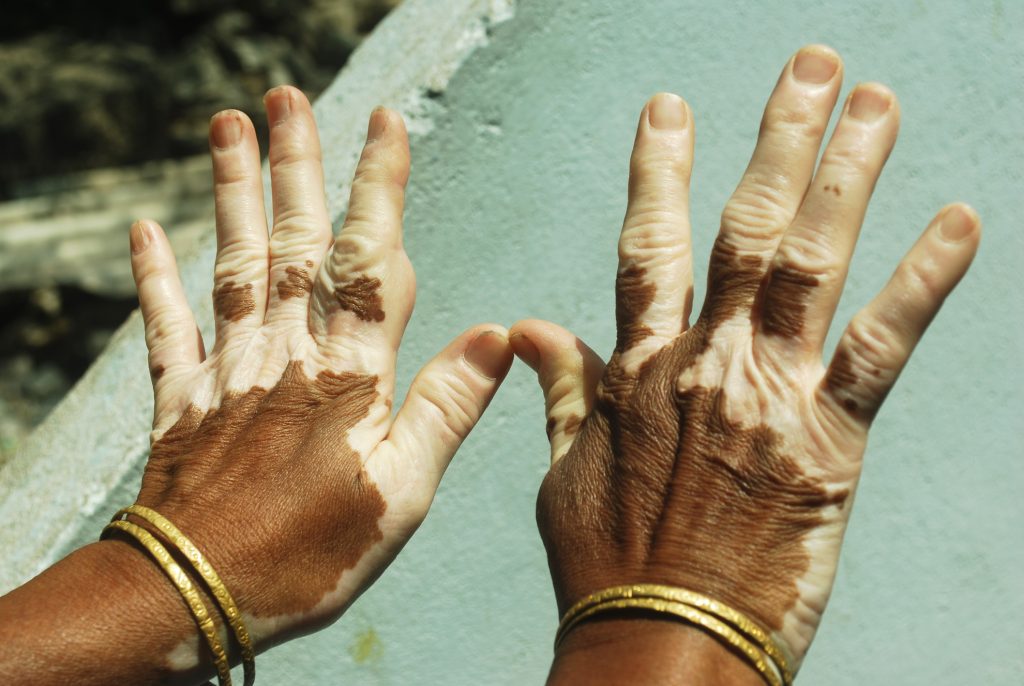Vitiligo Treatments from U.S. Dermatology Partners
What Is Vitiligo?
Vitiligo is an autoimmune disease in which white patches of skin appear on different areas of the body. This happens when melanocytes, the cells that make pigment in the skin, are destroyed. In addition to the skin, it can affect the mucous membranes of the mouth and nose as well as the eyes. Its cause is not known.

Vitiligo causes white patches on different areas of the body.
Find This Service Near You
Who Is at Risk for Vitiligo?
People with autoimmune diseases such as hyperthyroidism tend to get vitiligo at a higher rate than those without any autoimmune diseases. However, many people with vitiligo do not have any other autoimmune disease, and research has not shown why vitiligo is connected with these diseases.
Vitiligo may sometimes run in families, as children whose parents have it are more likely to develop vitiligo. Oftentimes, though, children will not get vitiligo even if a parent has it.
Vitiligo Symptoms
The main sign of vitiligo is white patches on the skin, most commonly in areas where the skin is exposed to the sun – such as the hands, feet, arms, face, and lips. However, patches may also be found in the armpits and groin area; around the mouth, eyes, nostrils and navel; and in the genital and rectal area.
In some cases, the patches will spread slowly over a long period of time, while other people may experience the rapid growth of white patches.
Vitiligo Treatment
Treatment of vitiligo currently includes medication, surgery and emotional support. Medication includes topical steroid creams, photochemotherapy (using ultraviolet light therapy) and oral medications. Among the surgical treatments for vitiligo are skin grafting and micropigmentation, or tattooing small areas of the skin to add color.
If you have vitiligo, it is important to minimize sun exposure and always use sunscreen, as the sun can increase contrast between the healthy and affected skin. Cosmetic products can help camouflage skin depigmentation and provide a more even skin tone. The doctors at U.S. Dermatology Partners can help you determine which treatment is best for your situation.
It may also be helpful to find a vitiligo support group to share your experiences and manage your emotions.
Vitiligo Prevention
Since the cause of vitiligo is uncertain, and because it is not contagious, the best means of prevention is believed to be maintaining a healthy immune system.
*Results may vary by individual


